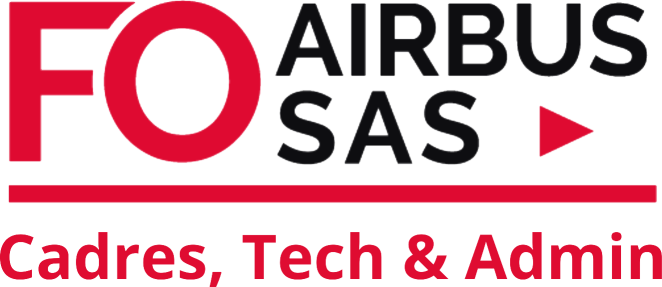The QVCT negociations (Qualité de Vie et Conditions de Travail - Quality of Life and Working Conditions) ended on 06th of June 2024. You will find here under the main points and in particular the changes for Home Working.
Stay in job, avoidance of professional exclusion
This will be an important chapter of the QVCT agreement that will explain the means put in place by Airbus to prevent and minimize the physical wear at work, limit to the maximum the situations that could lead to incapacity of an employee and foster the stay in the job while proposing redeployment options.
Prevention of PsychoSocial Risks (PSR)
The QVCT agreement will have also a part linked to the prevention, the detection and the management of PSR, plague of the 21st century in the white colars population in particular.
On this point where FO is very vigilent, the agreement will reinforce the power of the CSSCT commission (Commission Santé, Sécurité et Conditions de Travail).
For example a presentation of the complete mapping on multi sectors every 6 months including the PRS problematic identified and the sectors at risk.
Our CSSCT representatives will then intervene locally and make sure that the corrective actions are put in place.
QVCT Point Of Contact
Last, since a group agreement cannot solve the local issues (for instance the parkings or canteen congestions that contribute a lot to the well being at work), FO obtained the agreement from Airbus management to put in place QVCT Point Of Contact in each company to have clear points of contact to raise any issue encoutered.
Home working
All along the negociations, FO highlighted the need for the future home working rules to be more flexible than today.
FO is considering that home working is not a privilege but a mean to optimise the work, an environmental virtuous contribution and a private/business life balance.
We have been heard on several points:
- Home working days management: FO wanted to put a stop at the constraints of the 3 days minimum on site per week. This has been accepted.
The new rule will allow to home work 2 days in average per worked week, with a monitoring each month. The obligation to work on site will disappear.
The "in average" matters because we will be allowed, for instance, to home wotk 3 days one week if we home work 1 day another week of the same month. This will allow better accomodating the workload.
Also, contrary to the today rule, if there is a bank holiday, a day OFF or a business travel day in a week, we will be allowed to home work more than 1 day.
Note that this 2 days home work in average is for employees working full time. Those working at 80% will have 1 home work day per worked week and those working at 90% will have 1,5 home work day per worked week.
- Home working locations: we will be allowed to home work from home and from another location declared in France. All along the discussions, FO has claimed the possibility to home work whatver the location is and even outside France but Airbus management remained rigid on this point. We feel that this is a missed opportunity to make our company more attractive especially for employees of foreign origin.
- 1/2 day of home working: FO has claimed and obtained the possibility to ask for half home work days. This will be allowed 1 time a week. That will allow to home work half a day if we have asked for half a day OFF the same day and this will avoid to come on site for half a day only.
- Eligible employees: while today only the employees full time or at 80% can home work, FO has achieved that the measures are extended to all the employees. In particular, those who work less than 80% will now be allowed to use the days dedicated for occasional home working that will be brought upon FO request from 15 to 30 days per year.
- Compensation: FO asked all along the negociation that Airbus contribute financially for the devices required for the home working (chair, 2nd screen,...), also with a recurring "home working allowance" to cover the costs (heating, air conditioning, electricity). Airbus management did not accept any change on that point, that we are regretting.
The meeting to read the draft QVCT agreement will take place early July, and if signed, the agreement should enter into force force after summer.
It will apply for 4 years, a phase at the end of which an assessment will be carried out before renegotiating it.
FO will continue to make demands for which we have not been heard.


